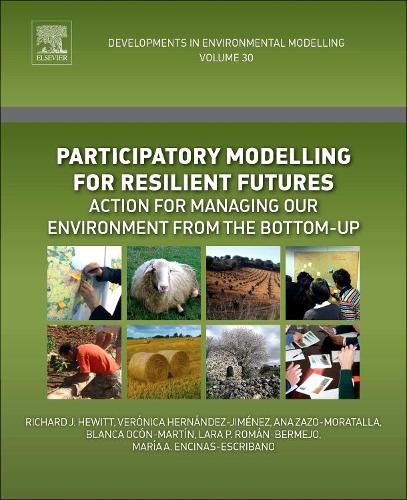Readings Newsletter
Become a Readings Member to make your shopping experience even easier.
Sign in or sign up for free!
You’re not far away from qualifying for FREE standard shipping within Australia
You’ve qualified for FREE standard shipping within Australia
The cart is loading…






Participatory Modelling for Resilient Futures: Action for Managing Our Environment from the Bottom-Up, Volume One provides an important contribution to environmental management by introducing an integrative framework for participatory research for better land use and natural resource planning, organized around compelling recent case studies. It is a valuable guide for the increasing number of students looking for solutions in sustainability science and also practitioners who are on the ground working with local communities to improve specific places.
The book was developed in response to the need to provide a clear and synthetic account, in accessible and non-technical language, of the way in which innovative integrative research can help solve real world human-environment interaction problems at a range of levels and scales, e.g., participatory modelling to secure a sustainable future for a natural protected area, working with stakeholders to break the deadlock on renewable energy implementation in Europe or tackling social exclusion and reducing food carbon footprint through local agroecology schemes.
$9.00 standard shipping within Australia
FREE standard shipping within Australia for orders over $100.00
Express & International shipping calculated at checkout
Stock availability can be subject to change without notice. We recommend calling the shop or contacting our online team to check availability of low stock items. Please see our Shopping Online page for more details.
Participatory Modelling for Resilient Futures: Action for Managing Our Environment from the Bottom-Up, Volume One provides an important contribution to environmental management by introducing an integrative framework for participatory research for better land use and natural resource planning, organized around compelling recent case studies. It is a valuable guide for the increasing number of students looking for solutions in sustainability science and also practitioners who are on the ground working with local communities to improve specific places.
The book was developed in response to the need to provide a clear and synthetic account, in accessible and non-technical language, of the way in which innovative integrative research can help solve real world human-environment interaction problems at a range of levels and scales, e.g., participatory modelling to secure a sustainable future for a natural protected area, working with stakeholders to break the deadlock on renewable energy implementation in Europe or tackling social exclusion and reducing food carbon footprint through local agroecology schemes.